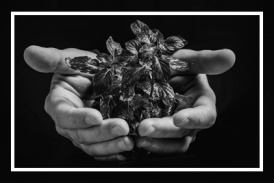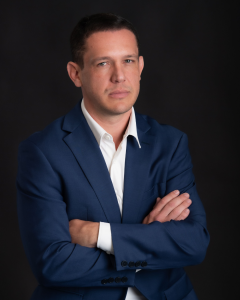From Trainer to Survivor: Rony Jabour Lives a Tsunami Emergency in Hawaii
OSHA safety trainer Rony Jabour recounts how a family vacation in Hawaii became a real-life test of everything he teaches about disaster readiness.
HONOLULU, HI, UNITED STATES, July 31, 2025 /EINPresswire.com/ -- When a tsunami warning shattered the calm of paradise, safety expert Rony Jabour didn’t just think about escaping — he thought about everyone who wouldn’t know how.On July 29, 2025, at a peaceful beach on the west side of Oʻahu, Hawaii, Rony Jabour stood waist-deep in water with his children when he heard the sirens. At first, he thought it was routine. Then the shoreline changed. The ocean drew back.
And his mindset shifted instantly — not just as a father, but as a professional trained for this exact moment.
“I wasn’t only thinking, ‘How do I get my family out of here?’” he recalls. “I was thinking, ‘How many people around us have no idea what this means — and what can I do about it before it’s too late?’”
From tranquil vacation to crisis mode
Rony Jabour is no stranger to emergencies. As an Outreach OSHA Disaster Site Worker Trainer, he has spent years preparing others to face extreme events — from hurricanes to industrial collapses.
He holds a Master’s Degree in Risk Management from the University of Texas and a certificate in Management and Leadership for EHS Professionals from Harvard University. His trainings are respected across the U.S., especially among immigrant construction workers — the very people often most vulnerable in disasters.
But nothing he teaches prepared him for the emotional weight of this moment.
“My son looked at me and asked, ‘Are we going to die?’ I had to stay strong. But inside, I was scanning the beach, watching the water, identifying exit points, and thinking: if this becomes real, who can I help along the way?”
A father — and a rescuer — on instinct
It took over two hours to reach the hotel from Kō Olina. Roads were closed. Panic was spreading. In Waikīkī, the streets were deserted. Stores shuttered. People cried, ran, shouted. The underground parking at the hotel was closed. They ran upstairs with their children in their arms — through empty lobbies and deafening uncertainty.
But even once his family was safe in the room, Rony wasn’t still.
“I paced the hallway. I looked at stairwells, window views, exit signs. I thought: if people panic here, what’s my role? If we lose power, who guides them down 20 floors? If a second wave comes, how do we communicate?”
It wasn’t paranoia. It was preparedness — deeply embedded after years of leading others through hypothetical crises. Now it was real.
A new mission born in silence
Later that night, after the tsunami risk had passed and his children were finally asleep, Rony sat in the dark and made a decision.
“This can’t just be another personal story of survival,” he said. “It needs to become a reason to train more people, reach more communities, especially tourists and immigrants who wouldn’t know what to do.”
Training is not about fear. It’s about dignity.
Jabour believes safety is more than regulation — it’s about preserving human dignity in the moments that feel most chaotic.
“What I lived that day reminded me that training doesn’t just protect buildings or companies. It saves lives. It gives people clarity when the world turns silent. And I want everyone to have that clarity.”
Rony now plans to develop a public-facing educational campaign for families and travelers, to share what to do in real emergencies — in plain language, with empathy and action.
Final reflection
“We were lucky,” he says. “But I don’t want luck to be the only reason people survive.”
Rony Jabour continues his mission from Boston, where he trains workers, advises businesses, and now — speaks from experience.
USN
USN
+1 978-767-0630
email us here
Legal Disclaimer:
EIN Presswire provides this news content "as is" without warranty of any kind. We do not accept any responsibility or liability for the accuracy, content, images, videos, licenses, completeness, legality, or reliability of the information contained in this article. If you have any complaints or copyright issues related to this article, kindly contact the author above.
Graphene Battery Market to Witness Comprehensive Growth by 2027 | Cabot Corporation, Cambridge Nanosystems
Biodegradable Plastics Market Enters New Growth Phase – Here’s What the Data Says
Global Viral Clearance Market: Trends, Segmentation, and Future Prospects
Więcej ważnych informacji
 Jedynka Newserii
Jedynka Newserii

 Jedynka Newserii
Jedynka Newserii

Konsument

Tylko 35 proc. Celów Zrównoważonego Rozwoju ONZ możliwe do osiągnięcia przed 2030 r. Potrzebna ściślejsza współpraca międzynarodowa
Jak wynika z raportu ONZ, choć w ciągu ostatniej dekady dzięki dążeniu do realizacji przyjętych celów udało się poprawić życie milionów ludzi na całym świecie, to jednak tempo zmian pozostaje zbyt wolne, by dało się je osiągnąć do 2030 roku. Postęp hamują przede wszystkim eskalacja konfliktów, zmiana klimatu, rosnące nierówności i niewystarczające finansowanie. Jak wynika ze sprawozdania Parlamentu Europejskiego, problemem jest także brak ścisłej współpracy międzynarodowej i sceptyczne podejście niektórych państw ONZ.
Przemysł spożywczy
UNICEF: Wszystkie dzieci poniżej piątego roku życia w Gazie cierpią z powodu niedożywienia. Sytuacja jest katastrofalna

Ataki Izraela na Strefę Gazy i jej izolacja doprowadziły do całkowitego załamania podstawowych usług i ograniczenia możliwości dostaw i dystrybucji pomocy humanitarnej – wskazuje UNICEF. W efekcie setki tysięcy Palestyńczyków są w sytuacji ciągłego zagrożenia życia i cierpią z powodu niedożywienia i głodu. Ta klęska dotyczy praktycznie wszystkich dzieci poniżej piątego roku życia. Konflikty są jednym z głównych przyczyn braku bezpieczeństwa żywnościowego, głodu i niedożywienia na świecie. Szczególnie dotyczy to Afryki i Azji Zachodniej.
Prawo
Branża ciepłownictwa czeka na unijną i krajową strategię transformacji. Liczy na większe fundusze i korzystne regulacje

Komisja Europejska zapowiedziała rozpoczęcie w I kwartale 2026 roku prac nad strategią dla ciepłownictwa i chłodnictwa. Nad tym strategicznym dokumentem w zakresie ciepłownictwa pracuje także polski rząd. Branża podkreśla, że obie te strategie będą miały kluczowe znaczenie dla trwającej transformacji w ciepłownictwie, czyli przyszłości ogromnych inwestycji, które czekają sektor do 2050 roku. Jednocześnie apeluje o większe wsparcie tego procesu ze środków publicznych.
Partner serwisu
Szkolenia

Akademia Newserii
Akademia Newserii to projekt, w ramach którego najlepsi polscy dziennikarze biznesowi, giełdowi oraz lifestylowi, a także szkoleniowcy z wieloletnim doświadczeniem dzielą się swoją wiedzą nt. pracy z mediami.


![Nestlé w Polsce podsumowuje wpływ na krajową gospodarkę. Firma wygenerowała 0,6 proc. polskiego PKB [DEPESZA]](https://www.newseria.pl/files/1097841585/fabryka-nesquik_1,w_85,r_png,_small.png)






.gif)

 |
| |
| |
|